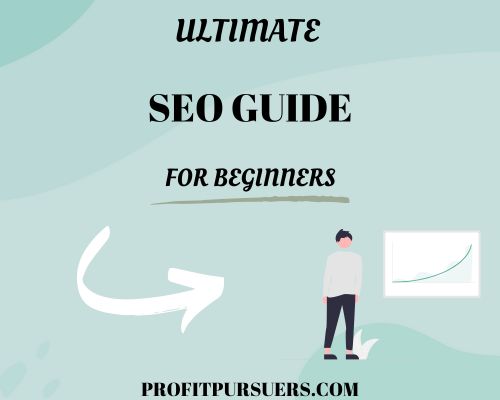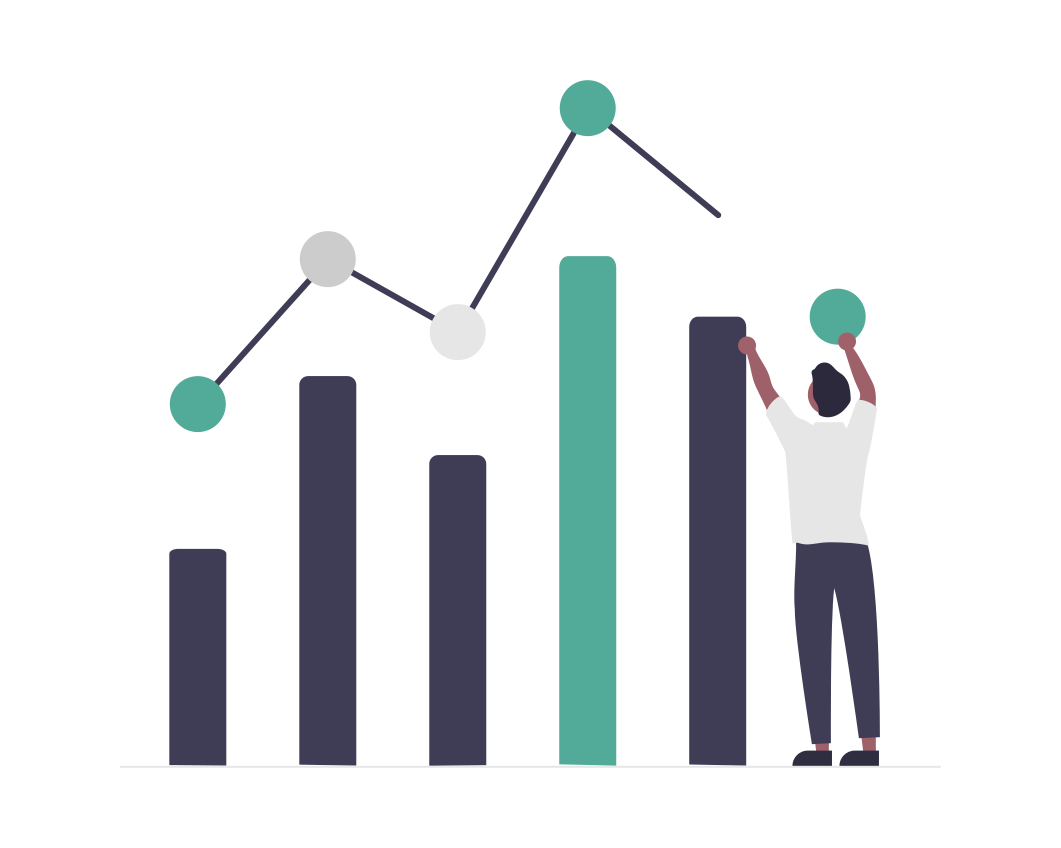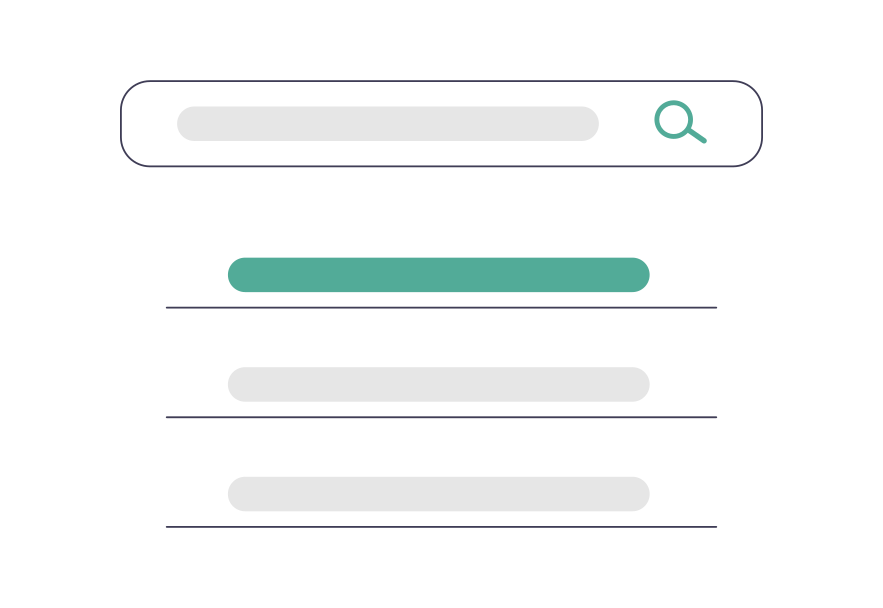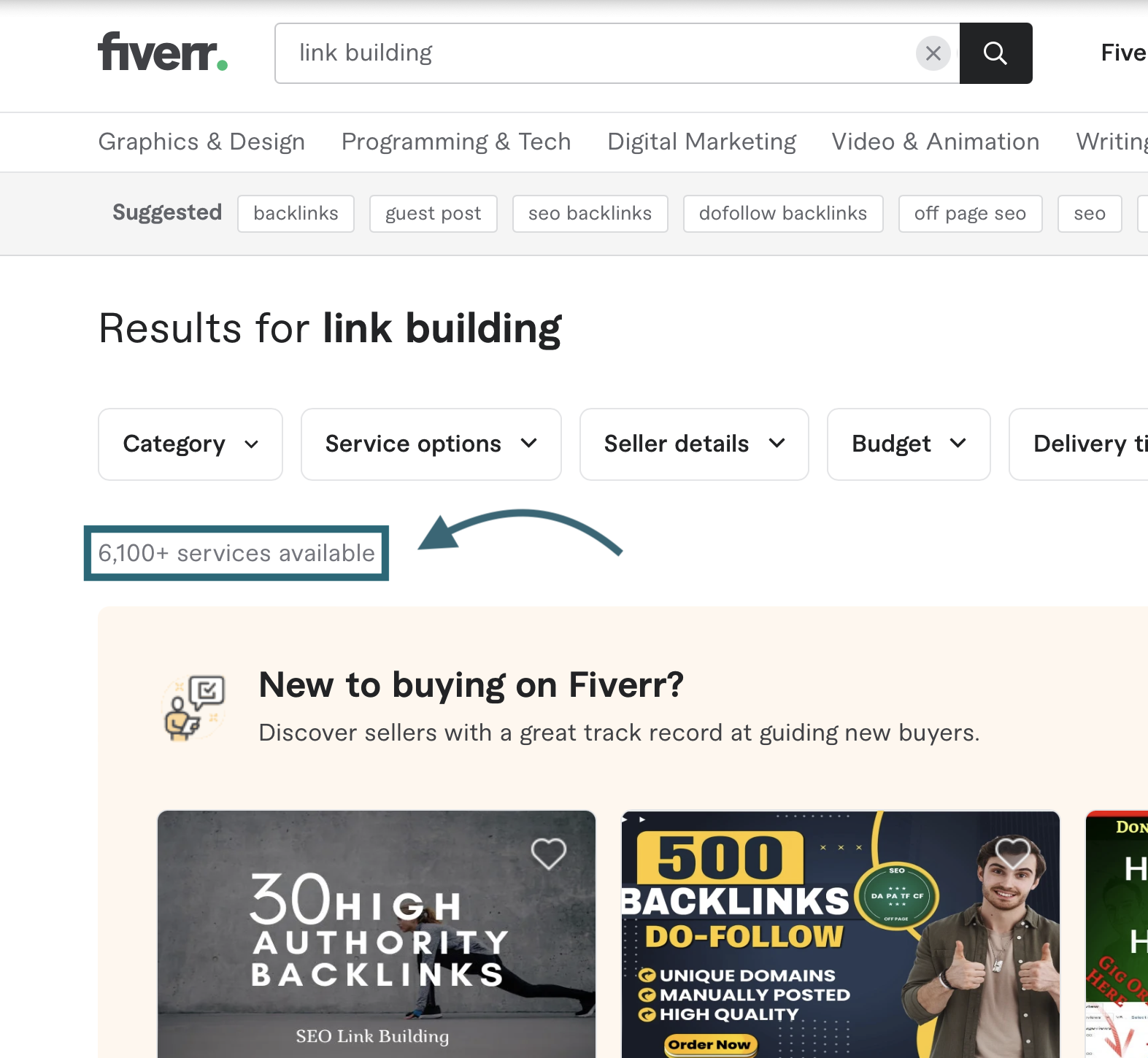Attracting a lot of people to one’s blog or website is probably the goal for each and every one of you!
Doing proper SEO is a well-proven way to achieve this goal.
Let us explore how you can do SEO as a complete beginner.
Here is the ultimate SEO Guide with everything you need to know to get started with SEO!

Ultimate Blog Post SEO Checklist
Before publishing any of my posts, I make sure to follow each step in this checklist.
Get this checklist to increase your website traffic!
By clicking the button, you also agree to receive upcoming blogging tips & resources to grow your online business! Unsubscribe anytime. No spam – promised.
What does SEO mean?
SEO stands for Search Engine Optimization. As I first heard this term, I was quite confused: Search Engine what?!…
But no worries. I soon figured out what this smart-seeming word actually means. And spoiler: It isn’t that complicated.
SEO, or Search Engine Optimization, is like making your website more appealing to search engines, such as Google or Bing, so they show it to more people when they search for things online.
It involves doing things like using the right words on your website, making it load quickly, and getting other websites to link to yours.
The goal is to help your website appear higher in search results, so more people can find and visit it without you having to pay for ads.
So basically SEO aims to make Google happy.
What Makes SEO Important?
Let us ask ourselves another question: What are the benefits of posts being highly ranked in search results?
Traffic! A bunch of new people will click on your posts and discover your blog.
You call this organic traffic: Visitors that come from unpaid search engine results.
An increase in your page views opens doors to make more money (traffic = potential customers) and to make yourself a name in your niche.
That’s why it is crucial to learn about the key elements of SEO and what you can do to be as SEO-friendly as possible.
Let us start with the key elements.
On-Page and Off-Page SEO
SEO can be subdivided in two key elements: On-page and off-page SEO.
A: On-Page SEO
On-page SEO is all about making changes directly on your web pages to improve their visibility and ranking high in search results.
Imagine this: Your website is a shop on a busy street, and on-page SEO is like putting up a big, shiny sign that says, “Come in, we have what you’re looking for!”
B: Off-Page SEO
You guessed it! Off-Page SEO is all about what you can do outside from your website.
It is like spreading the word about your website all around town.
And how can I optimize my website for SEO?
Best On-Page SEO Practices
Let us start with keywords, a powerful On-Page SEO Practice.
These are the words and phrases that people type into search engines when they’re looking for something.
By distributing these keywords throughout your web pages – in your titles, headings, and even in the actual content – you’re telling search engines, “Hey, my website is relevant to what people are searching for!”
On-page SEO is also about making sure your website is easy to navigate and understand, so that search engines get an idea of what your page is dealing with.
That means organizing your content into logical sections with clear headings, using descriptive URLs, and making sure your website loads quickly and works well on both computers and mobile devices.
Including internal links directing to related content makes your website even more attractive for search engines.
Also Google and other search engines love high-quality content to make sure their users find something helpful.
This could be blog posts, articles, product descriptions, or anything else that’s relevant to your website.
The key is to ensure your content is helpful, informative, and engaging – something that people will want to share with their friends or link to from their own websites.
Best Off-Page SEO Practices
Link building is the most effective way to do off-page SEO. That’s a fact. Period.
Why?
Google uses backlinks to determine a website’s authoritativeness.
Backlinks is when other websites include links to your site on their own pages.
It’s like getting a recommendation from a friend – if other websites think your content is good enough to link to, search engines will see your website as more trustworthy and relevant.
Social media also plays a big role in off-page SEO.
When people share your website or content on platforms like Instagram, Facebook or Pinterest your website will get more visibility. The more visibility it get, the higher it can clim in search results.
There are a bunch of other ways to do off-page SEO. But as I said, building links is the most crucial one!
How Can You Build Links?
As link building is extremely useful to achieve explosive growth, I want us to have a look at this topic separately.
As I first heard of link building, I was like, “How can I ever bring somebody to link to my page!?”
And yeah, you do not often hear this in a SEO guide, but this is really hard, especially at the beginning.
That’s the truth!
The good news? Even as beginners there are a lot of ways to start building links!
Guest Blogging
Writing a blog post for another blog in your niche. That’s guest blogging!
You can leverage guest blogging for link building, by including links within the content, where relevant.
This way you create backlinks to your website.
Make sure to create valuable content for the blog you are writing for.
That’s crucial, since the content decides whether or not people want to read more from you.
Linkable Assets
What about offering people something that they genuinely want to link to?
These so-called linkable assets are another way to do lnikbuilding.
Here are some examples of linkable assets:
- Online Tools and Calculators
- Tutorials (How-To-Posts)
- Studies
- Statistics and Infographics
What asset is best for you depends on your niche.
Calculators are, for example, a popular tool among bloggers in the finance niche.
Valuable Content
Having linkable assets can be beneficial for SEO, but it is no must-have.
It is more important to me to create valuable content that really helps my audience.
The best thing about it is, that people automatically link to your posts once they found something helpful.
Win-win situation. Your audience find helpful content, and you are getting high-quality backlinks!
Avoid Paying for Links
Among SEOs it is common to pay for links. Only on Fiverr there are more than 6,100 link building services available.
Just look at the screenshot below!
I would NOT recommend to pay for link building.
Paying for link building is of course not what Google likes to see.
In fact, your page can be punished for this practice resulting in very poor rankings in search results.
Nonetheless, many people take this risk to gain more exposure from search engines.
Again: I strongly advise against paying for link building.
Measuring SEO Success
Now, if you’re sill here with me, we’re now entering the exiting part: Looking at how your work pays off!
If you implement the advice provided in this SEO guide you’ll most probably see any kind of changes.
You won’t do everything perfect right at the beginning. And that’s fine!
Learning from mistakes is key to improve your skills!
To see whether your SEO practices work it is important to use analytical tools.
Using these tools, you get insights about a number of actionable data including traffic, conversion rates and audience preferences.
If you’re planning to use analytical tools, consider having a look at Google Analytics and Google Search Console.
You can use them for absolutely free!
The Takeaway
At the end of each of my posts I provide a short takeaway. Just to make sure you remember the things you learned today!
SEO (Search Engine Optimization) describes the practice of making your website more appealing for search engines such as Google or Bing.
The main goal is to rank higher in search results, so that more people can find your website.
Doing SEO properly results in an increase of organic traffic.
This means that more people visit your site without you having to pay for this traffic.
This offers better opportunities to monetize your website and to gain popularity in your niche.
On-Page SEO: SEO practices you can do on your website.
Off-Page SEO: SEO practices you can do outside of your page.
Apply both to achieve the best results.
On-Page SEO: keywords, high-quality content, internal links, clear and easy to navigate structure
Off-Page SEO: link building, social media, etc.
Use the following ways to build links to your site:
- linkable assets
- valuable content
- guest blogging
DO NOT pay for backlinks.
Use tools such as Google Analytics and Google Search Console to measure your success.
Final Thoughts
That was a lot of input, I know. But for self-defense: This was supposed to be a complete SEO guide.
I hope that you now have a better idea about the whole topic of SEO.
Try to implement the steps provided so that your page ranks top in search results!






